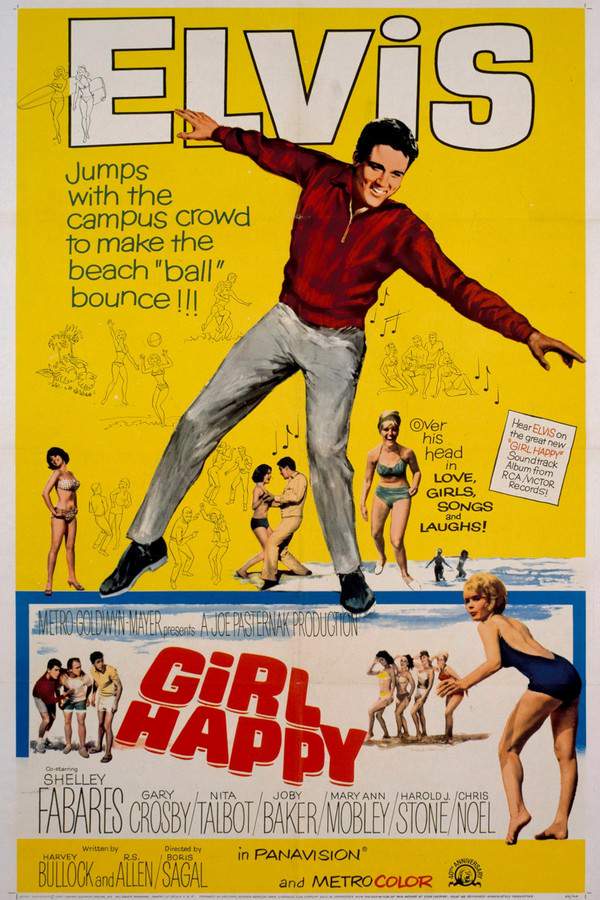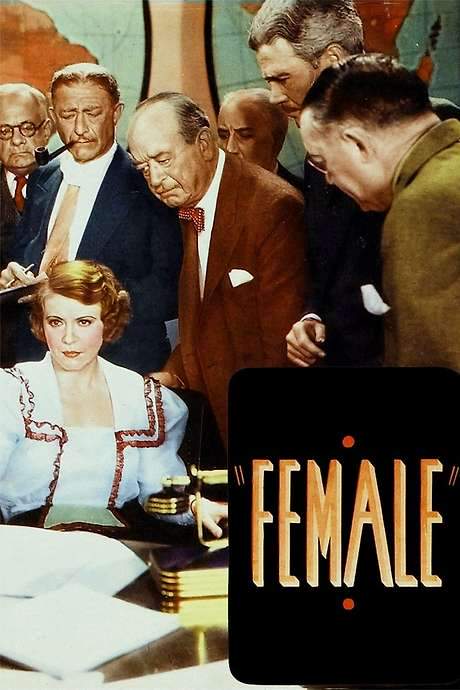
Never on Sunday
Year: 1960
Runtime: 91 mins
Language: Greek
The Happy Street-Walker of Piraeus… An American scholar in Greece sets about improving the local prostitute with whom he is infatuated.
Warning: spoilers below!
Haven’t seen Never on Sunday yet? This summary contains major spoilers. Bookmark the page, watch the movie, and come back for the full breakdown. If you're ready, scroll on and relive the story!
Never on Sunday (1960) – Full Plot Summary & Ending Explained
Read the complete plot breakdown of Never on Sunday (1960), including all key story events, major twists, and the ending explained in detail. Discover what really happened—and what it all means.
In the bustling port city of Piraeus, Greece, Ilya is a free-spirited, self-employed prostitute who has cultivated a loyal group of regular clients whom she entertains during weekly Sunday gatherings — her designated day off from her business. Her adventurous nature is vividly showcased when, on a whim, she strips down to her underwear and plunges into the ocean near the shipyard, inviting many workers to join her swim. Among them is Tonio, a charming, half-Italian worker who quickly becomes enchanted by Ilya’s striking beauty and carefree attitude. Interested in her, Tonio learns that Ilya doesn’t set fixed prices and only engages with clients she genuinely likes, teasing Tonio about his chances to win her over that evening. Determined to become her exclusive, he resolutely aims to capture her heart.
Meanwhile, Homer Thrace, played by Jules Dassin, is an American scholar deeply immersed in classical Hellenic philosophy. He believes Ilya embodies a Greek cultural decline, which he attributes to the influence of Stoic and Epicurean philosophies that emphasize detachment and pleasure over understanding and moral virtue, as advocated by ancient philosophers like Socrates, Plato, and Aristotle. Homer views the pursuit of true happiness as rooted in the joy of knowledge; however, Ilya perceives life through her own unique lens, filtering out negativity and embracing a relentlessly optimistic outlook. Her perspective is vividly illustrated when she accompanies Homer to see a performance of Medea. Ilya interprets Medea as a nurturing mother and devoted wife, who cunningly seeks to rekindle her marriage, dismissing the tragedy and ruthlessness traditionally associated with her actions to take revenge.
Homer, however, finds Ilya’s buoyant worldview incomprehensible. He sees himself as a Pygmalion figure, believing it his moral duty to reshape Ilya into a more morally upright and content individual, seeing her as someone who could lead a better life if guided properly. Their connection becomes deeper when Noface, the mysterious owner of apartment houses where prostitutes work, considers Ilya a disruptive influence. Noface, whose identity remains hidden behind large sunglasses, is concerned about Ilya’s independence and her influence on the other prostitutes, especially Despo, who leads a strike demanding lower rents.
Despo approaches Ilya, urging her to encourage the other women to cease working as part of their protest. Recognizing their shared goal of undermining Noface’s control, Homer is funded by Noface to attempt an experiment: he proposes to Ilya that they spend two weeks together, with Homer paying her for her exclusive company, as he offers to teach her classical knowledge and culture in hopes of reforming her. Despo and the prostitutes see this as an opportunity, and when Homer’s plan begins, Ilya makes an effort to study the books and listen to records Homer provides — though she quickly grows bored, especially since she’d rather be out partying with sailors, especially when she hears the arrival of ships in the harbor.
As the two-week period concludes, Noface pays Homer for his work, but Despo, having seen the transaction, immediately informs Ilya about the scheme. Furious, Ilya leads a dramatic strike, throwing her and the other prostitutes’ bedding out of the windows and refusing to operate. The police arrest them, but the prostitutes’ fines are paid off by Noface’s lawyer. In negotiations, Noface agrees to reduce the rents by half, aiming to dilute Ilya’s influence. Amidst these upheavals, Tonio and his friends arrive to escort Ilya to a local bar, where Homer’s attempt at cultural education has led to some humorous conflicts, such as him criticizing a guitar player for lacking the ability to read music.
Homer, never shy to voice his opinions, tells Ilya she’s beautiful but “dumb,” lamenting his failed attempt to “save” her. In a heartfelt moment, Tonio insists that Ilya is not just a symbol, but a genuine woman with her own desires and ambitions. Homer admits he wanted to make love to her but restrained himself, recognizing her autonomy. However, Tonio, with confident resolve, declares it’s “too late” for regrets, as he sweeps Ilya away to Italy for a new beginning — a gesture that deeply stirs her.
As Homer prepares to leave Piraeus, he boards a ship back to the United States, discarding his notes and reflections on his experiments with Ilya. The film closes on a poetic note, with a final scene that echoes the Greek farewell—“And they all go to the seashore!” — symbolizing both departure and the eternal connection to the sea, life’s endless horizon, and the pursuit of freedom and understanding.
Last Updated: August 19, 2025 at 05:14
Explore Movie Threads
Discover curated groups of movies connected by mood, themes, and story style. Browse collections built around emotion, atmosphere, and narrative focus to easily find films that match what you feel like watching right now.
Movies like Never on Sunday: Philosophical Romantic Comedies
Love stories that charm and delight while gently exploring deeper ideas.Discover movies like 'Never on Sunday' that pair delightful romantic chemistry and comedic moments with a thoughtful exploration of ideas. These films offer a similar vibe of charming characters in beautiful settings navigating love and life's bigger questions.
Narrative Summary
Stories in this thread typically follow a central romance that is complicated by a clash of values or a philosophical debate. Characters often challenge each other's worldviews, leading to personal growth and a reaffirmation of what truly brings happiness, all while maintaining a warm and optimistic tone.
Why These Movies?
These movies are grouped together because they share a unique blend of lighthearted romance, whimsical humor, and a gentle, thoughtful core. They provide an uplifting experience that is both emotionally satisfying and intellectually stimulating without being heavy or bleak.
Movies with free-spirited heroines like Ilya in Never on Sunday
Celebrating unconventional women who fiercely protect their unique path to happiness.If you liked the defiantly joyful Ilya in 'Never on Sunday,' explore these other films featuring charismatic, free-spirited women who challenge societal norms and defend their right to live life on their own terms with optimism and charm.
Narrative Summary
The narrative pattern involves an outsider, often with rigid or 'civilized' ideals, attempting to reform or 'save' the female lead. The heart of the story is her spirited defense of her lifestyle, leading to a climax where she either converts the skeptic or chooses her own path, affirming her autonomy and unique philosophy.
Why These Movies?
These films are connected by their focus on a specific character archetype: the life-affirming, unconventional woman who is the moral center of her story. They share a tone of optimistic rebellion and a theme of personal freedom triumphing over external judgment.
Unlock the Full Story of Never on Sunday
Don't stop at just watching — explore Never on Sunday in full detail. From the complete plot summary and scene-by-scene timeline to character breakdowns, thematic analysis, and a deep dive into the ending — every page helps you truly understand what Never on Sunday is all about. Plus, discover what's next after the movie.
Never on Sunday Timeline
Track the full timeline of Never on Sunday with every major event arranged chronologically. Perfect for decoding non-linear storytelling, flashbacks, or parallel narratives with a clear scene-by-scene breakdown.

Characters, Settings & Themes in Never on Sunday
Discover the characters, locations, and core themes that shape Never on Sunday. Get insights into symbolic elements, setting significance, and deeper narrative meaning — ideal for thematic analysis and movie breakdowns.

Never on Sunday Spoiler-Free Summary
Get a quick, spoiler-free overview of Never on Sunday that covers the main plot points and key details without revealing any major twists or spoilers. Perfect for those who want to know what to expect before diving in.

More About Never on Sunday
Visit What's After the Movie to explore more about Never on Sunday: box office results, cast and crew info, production details, post-credit scenes, and external links — all in one place for movie fans and researchers.

Similar Movies to Never on Sunday
Discover movies like Never on Sunday that share similar genres, themes, and storytelling elements. Whether you’re drawn to the atmosphere, character arcs, or plot structure, these curated recommendations will help you explore more films you’ll love.
Explore More About Movie Never on Sunday
Never on Sunday (1960) Scene-by-Scene Movie Timeline
Never on Sunday (1960) Movie Characters, Themes & Settings
Never on Sunday (1960) Spoiler-Free Summary & Key Flow
Movies Like Never on Sunday – Similar Titles You’ll Enjoy
Sunday in New York (1964) Full Summary & Key Details
Never Say… Never! (2005) Film Overview & Timeline
Sunday Lovers (1980) Spoiler-Packed Plot Recap
When The Wheels Danced (1984) Story Summary & Characters
Darling, Let’s Get Naked! (1984) Plot Summary & Ending Explained
Naked On The Street (1969) Movie Recap & Themes
Windfall in Athens (1954) Movie Recap & Themes
Something Hot (1964) Ending Explained & Film Insights
Zorba the Greek (1964) Full Summary & Key Details
Sunday (1997) Spoiler-Packed Plot Recap
Saturday, Sunday and Friday (1979) Film Overview & Timeline
A Sunday Romance (1957) Full Movie Breakdown
Up, Down and Sideways (1992) Film Overview & Timeline
Street Angel (1928) Ending Explained & Film Insights
Tonight or Never (1931) Complete Plot Breakdown













































